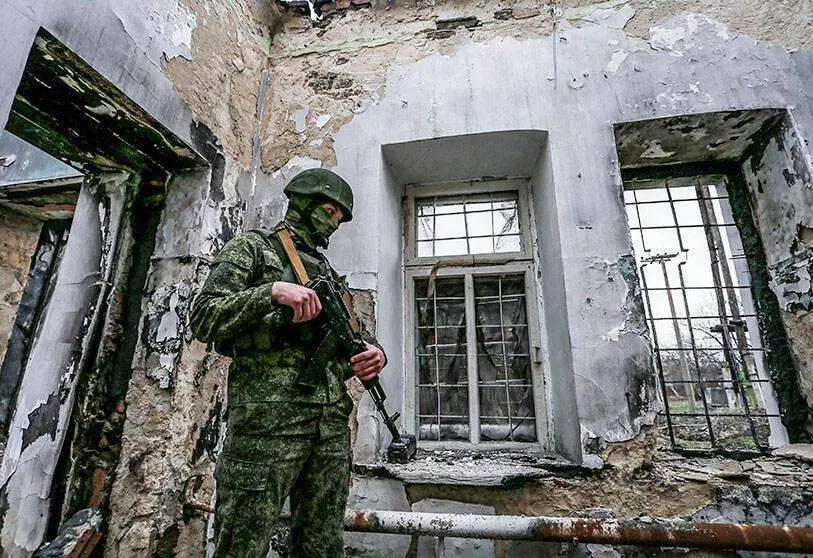Europeans in the face of the Ukrainian crisis

Shortly after taking office and forming a government, German Chancellor Olaf Scholz has had to face his first major international crisis over Ukraine. And he is not coming off very well because of his reluctance to stand firm in the face of Putin's military threats. Joschka Fischer, former leader of the Greens and former foreign minister under Gerhard Schroeder (who is, incidentally, the current chairman of the controversial Nord Stream 2 pipeline and incoming board member of Gazprom, as well as chairman of Rosneft), has written an article entitled "Ukraine and the Ukraine and the Ukraine and the EU", has written an article entitled "Ukraine and the future of Europe" in which he argues that a war would jeopardise the European order and such cherished principles as the renunciation of violence, self-determination, national sovereignty, territorial integrity, and the inviolability of borders on which Europe has been based since the end of the Cold War. Nothing less. He is right, and that is why there is no room for half-heartedness or half-measures, and our Foreign Minister has done well to take the plane to Kiev and express Spain's solidarity with Ukraine at this difficult time. It is true that the German minister, Annalena Baerbock, has also been to Kiev a couple of times.... where she brought 5000 helmets as a contribution to the defence against Russia. It seems laughable.
Scholz has been in Washington these days where she met with Biden. His subsequent appearance before the media reflected a very firm US president, threatening Putin with harsh sanctions including the non-commissioning of the Nord Stream 2 gas pipeline (which the Americans have never wanted because they believe it would increase Germany's dependence on Russia), Scholz appeared more evasive, not mentioning the pipeline (which is causing disagreements within his own government) and stating that both spoke "with one voice" and that they agree on a "joint reaction" that would have "very serious consequences" for Moscow in the event of aggression against Ukraine. Scholz, who is planning a trip to Russia, maintained this vagueness after meeting later in Berlin with Emmanuel Macron and Andrzej Duda. The three leaders then stated that their common goal is to "avoid a war in Europe" - something we all agree on, but which remains a frustrating truism. Scholz's attitude undoubtedly brings together the memory of a past that continues to weigh heavily in Germany and explains his reluctance to lead, along with his dependence on Russian gas when after Fukushima they decided to close the nuclear power plants, undeniable economic and commercial interests, and a certain lack of experience in the position that possibly encourages him to go with leaden feet and not like Macron, who intends to take advantage of Merkel's departure to show off his chest and become the leader of Europe at a time when his country is preparing elections in which his job is at stake. The fact is that Macron showed up in Moscow like De Gaulle with some ideas for resolving the crisis and then had to listen to the Russian impertinence - not without truth - that France is not the country that calls the shots in NATO and that Moscow prefers to deal with such matters with Washington. It's like telling him that children shouldn't play with grown-ups' things. Very harsh. I ask: wouldn't they all be better off going together under the European hat than trying to make peace on their own only to be rebuffed? Forgive my naivety, but as Enrico Letta once said, "Europe is made up of small countries and others that do not yet know they are small". That is why Borrell's efforts to make Europe visible should be supported, because if we don't go together, neither the Russians, nor the Chinese, nor the Americans will take us seriously.
Fortunately, at least we are still together (albeit each to our own devices) among Europeans and also with our American friend in our response in the event of aggression, and Russia's attempts to divide us have so far been unsuccessful. Indeed, as Richard Haas, editor of Foreign Policy, recently put it, Putin's mistake was to underestimate NATO's cohesion. I would go further, because what Putin has achieved is to revitalise an organisation that only a few months ago Macron claimed was "brain dead". So to speak, he has shot himself in the foot. Moreover, in recent weeks Ukrainians have reinforced their desire to join NATO (59%) and the European Union (67%). It seems that only 10% are in favour of closer ties with Russia.
After the mess Putin has made, he has to save face. We would like to be able to help him but the problem is that only he knows how he wants to or can do it. Or does he not know either?


